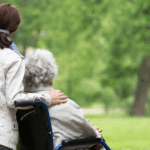Creative activities reduce anxiety, depression and agitation symptoms in people with dementia. This matters deeply when you’re looking for quality dementia care in Tacoma, WA. The right activities create meaningful differences in your loved one’s emotional well-being and daily life quality. Meaningful hobbies serve a purpose beyond filling time for seniors facing memory challenges. These activities create precious moments of connection and joy.
Creative Hobbies That Spark Joy
Painting and drawing for self-expression
Artistic activities give seniors a special way to communicate beyond words. Painting and drawing become vital emotional outlets for many seniors with dementia, helping them express feelings that might otherwise remain trapped inside.
Regular painting sessions provide remarkable benefits:
- Reduces stress and anxiety while promoting relaxation
- Improves concentration and stimulates memory by forming new connections between brain cells
Scrapbooking and photo albums
This creative process helps seniors through:
- Enhanced cognitive function as they recall people and events
- Emotional connections are formed through reminiscing about cherished moments
- Improved focus and concentration while organizing elements on a page
Simple crafts and DIY projects
Accessible craft projects deliver immediate satisfaction and purpose. When choosing activities for your loved one in memory care, look for hands-on projects matching their previous interests and current abilities. Popular options include decorating wooden objects, creating seasonal door hangers or making paper flowers. These activities provide sensory stimulation through varied textures and colors while creating tangible results. Finished crafts can become meaningful gifts, allowing seniors to maintain their identity as givers despite cognitive changes.
Sensory Activities That Calm and Connect
Sensory stimulation brings comfort to people with dementia, reaching them when words no longer connect. These activities engage the senses, easing anxiety while building meaningful bonds.
Aromatherapy and familiar scents
Smell connects deeply to memory and emotion, making aromatherapy especially helpful for dementia care. Scent remains a powerful tool for triggering memories and relaxation, even during later stages of memory loss. Try these approaches:
- Bring natural scents indoors with herb pots or scented flowers
- Use essential oils in a diffuser when your loved one feels agitated
- Try familiar scents that might awaken positive memories from their past
Tactile play with fabrics or textures
Touching different textures stimulates the brain while providing comfort. This tactile stimulation improves short and long-term memory for those with Alzheimer’s disease while enhancing mood and social interaction. Create a sensory box filled with various textures – smooth stones, soft fabrics and wooden objects. Simple everyday tasks like folding towels or sorting clean socks offer soothing tactile experiences.
Social and Memory-Boosting Games
Card games and puzzles
Simple card games provide gentle cognitive exercise for those facing memory challenges. Games like Go Fish, Old Maid and Crazy Eights involve basic matching and strategy while remaining accessible. Handling cards offers tactile stimulation and connects to familiar pastimes, even for those in later dementia stages. When choosing puzzles, match them to your loved one’s abilities:
- Mid-stage dementia: Large-piece jigsaw puzzles (36-60 pieces)
- Advanced stages: Simple wooden puzzles or sound puzzles
These activities might help create new brain neurons, potentially slowing cognitive decline. Remember, enjoyment matters more than competition or correctness.
Music and sing-alongs
Music therapy stands out as one of the most effective approaches in dementia care. People with dementia often participate in music activities for nearly 25 minutes, even when other activities become difficult. Familiar songs help those with dementia by:
- Activating brain areas responsible for auditory processing and emotional regulation
- Lifting mood and reducing agitation
- Helping maintain verbal memory over time
Choose songs from your loved one’s youth or early adulthood for strongest responses. Make sure lyrics are visible and the music stays in a comfortable singing range.
Reminiscence through storytelling
Personal stories remain surprisingly intact despite cognitive changes. Storytelling sessions allow individuals to share life experiences while using language skills and accessing long-term memories. For successful storytelling moments:
- Offer photographs or meaningful objects as gentle prompts
- Give plenty of time for thought gathering
- Value emotional truth over perfect factual accuracy
Finding Joy Through Meaningful Engagement
The process matters more than the product. Perfect art pieces or winning games seem important, but the real value lies in those moments of connection and happiness shared during these activities.
Above all, bring patience, flexibility and love to each activity. These meaningful engagements turn ordinary days into extraordinary moments of connection and joy for both you and your loved one. Looking for a memory care community? Contact us at (253) 474-1741 to schedule a tour of our community, Peoples Senior Living.
FAQs
Q1. What are some engaging hobbies for seniors with memory challenges?
Creative activities like painting, scrapbooking and simple crafts can provide meaningful engagement and emotional benefits. Sensory activities such as aromatherapy and tactile play also offer comfort and stimulation. Physical activities like gentle walks or chair yoga help maintain mobility and well-being.
Q2. How can music benefit individuals with dementia?
Music therapy is highly effective for dementia care. It can improve mood, reduce agitation and help stabilize verbal memory. Individuals with dementia can often participate in music activities for extended periods, even when other activities become challenging. Familiar songs from a person’s youth tend to elicit the strongest responses.
Q3. How can reminiscence activities help those with memory challenges?
Reminiscence activities, such as storytelling or creating memory books, can be very beneficial. These activities tap into preserved long-term memories, enhance cognitive function and create emotional connections. Using photographs or objects as prompts can facilitate successful storytelling sessions. The emphasis should be on the emotional connection rather than factual accuracy.












